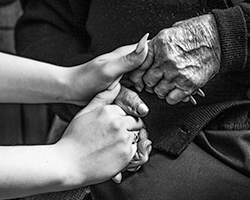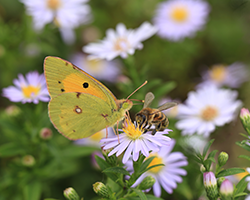 Damaris Browne is a former solicitor whose ancestors include Spanish aristocrats, Somerset horse-dealers, numerous soldiers of various ranks from private to general, and one wife-murderer.
Damaris Browne is a former solicitor whose ancestors include Spanish aristocrats, Somerset horse-dealers, numerous soldiers of various ranks from private to general, and one wife-murderer.
Damaris Browne
Orison – Praying, Remembering. Chapter 4: Remembering the Postulant House
 Hear my prayer, Lady, and remember me, the unhappy girl in the Postulant House. It was there I ran away from you for the first time. It all began with my name …
Hear my prayer, Lady, and remember me, the unhappy girl in the Postulant House. It was there I ran away from you for the first time. It all began with my name …
“What’s your name?” the tall girl asks, and the floodgates open.
“How old are you?”
“Where are you from?”
“What’s your caste?”
“Is it true you can’t talk?”
Girl is dazed, flustered. Nearly a month she’s been at the monastery, but until now her only company has been Shanti, a slow, sweet dumpling of a serving girl who was surely a water buffalo in her last life. Shanti looked after Girl, sleeping alongside her, bathing, eating and praying alongside her, and never once asked any questions or made any demands. Gradually, under her placid care, Girl learned to trust and to speak again.
But Shanti has other duties now and Girl must live with the young girls in the Postulant House, and they’re crowding about her with their shrill voices and insistent questions, and her head is spinning.
“I’m called Girl,” she finally stammers.
Orison – Praying, Remembering. Chapter 3: Remembering the Statue
 Hear my prayer, Lady, and remember me. Your priestess brought me to the monastery. There I saw your statue for the first time. There I turned away from you for the first time. But before you, there was another …
Hear my prayer, Lady, and remember me. Your priestess brought me to the monastery. There I saw your statue for the first time. There I turned away from you for the first time. But before you, there was another …
“Here, little one. Sit here.”
Sukhbir, the older of the priestess’s guards, points to a broken wall well away from the crowd. Girl sits. She likes Sukhbir. He’s kind and gentle and makes her laugh. He’s her friend, and she’s never had a friend before.
The young guard, Lal, is nice enough, but smells of rice wine and raksi, reminding her of Aprakash. The priestess is beautiful, but far away somehow, as if always thinking important thoughts.
And Sukhbir is the one who bought clothes for Girl – new clothes, not ragged cast-offs – which keep her warm as they climb higher and higher into the mountains. He’s the one who holds her when she’s sick, which is often, as she isn’t used to having such rich food and so much to eat. And he’s the one she rides with, sitting before him on his great horse, while he tells her about the monastery and the priestesses, who she mustn’t call “lady” but “honoured one”, because the Lady is the goddess, the Lady of Six Aspects, though Girl doesn’t know what an aspect is. But whatever Sukhbir says to do, she does. So when he says “Sit here.” she sits.
Orison – Praying, Remembering. Chapter 2: Remembering the Priestess
 Hear my prayer, Lady, and remember me, your little mouse. You sent your priestess to free me from my cage …
Hear my prayer, Lady, and remember me, your little mouse. You sent your priestess to free me from my cage …
“I shall come for you.”
Girl whispers the words to herself as she rides a water buffalo home from the steep terraces of the rice fields. Many, many days have passed since the goddess made the promise, but Girl knows she will keep her word.
But how will she come? In a chariot, drawn by white buffaloes? Riding a great golden yak? Or a tiger? Yes, a tiger. And the goddess will let it eat Naala.
Girl has more weals on her back and legs nowadays, as Naala finds any excuse to lash out with her bamboo cane. For Aprakash has gone, and not to his auntie’s. Gone without the golden horn-caps, but Girl is sure he’s taken other things, for Naala has spent hours searching her coffers, sometimes weeping that he’s left her, more often cursing his name.
The village gossips think he’s gone for good. Girl hopes so. The goddess said not to fear his threats, but Girl does fear, and she repeats the goddess’s promise over and over to herself like a holy mantra.
Orison – Praying, Remembering. Chapter 1: Remembering Girl
 Hear my prayer, Lady, and remember me. I was six years old, no one, nothing, but you found me. Girl was my name …
Hear my prayer, Lady, and remember me. I was six years old, no one, nothing, but you found me. Girl was my name …
“Girl! GIRL!”
Girl doesn’t respond, only crawls further into the gap beneath the house, deeper into the shadows. She’s done nothing wrong, but Naala screaming for her like that means a beating.
“This is how I’m repaid for my compassion and benevolence,” cries Naala as villagers gather. “But it certainly shows I lacked wisdom, taking in the orphaned babe, caring for her for five long years. In truth, she’s as wicked as her feckless parents. But I’ll have judgement-giving and justice before the god. As Temple Elder, I demand it.”
Girl doesn’t understand all the words, but some make her tingle inside. Then Aprakash stumbles from the house, half-drunk on rice wine and raksi.
“Why all the shrieking, Mother?” he demands. “What’s the brat done now?”
“Theft! Theft from my own house!”
Akiowa Finds Herself
 “Old story, new story…”
“Old story, new story…”
Softly, mournfully, Akiowa sang the Storyteller’s call to herself, but the rest died on her lips as she reached the brow of the ridge and gazed down over the land. A sparkling river ran alongside a birch forest, overlooked by a white rock shaped like a wolf howling at the sky. A rock she’d first seen as a babe, when her father had brought her to be blessed by the village totem. A rock which had watched, impassive, as the tribeless men carried her away.
Home. After the long years of slavery and wandering, she was home. She fell to her knees, one trembling hand at her mouth holding back her cry of joy, tears pricking her eyes.
Then joy turned to sorrow; the tears fell. For this was no longer home, since she was no longer Akiowa, young daughter of the tribe’s noblest man, his dwelling hers as long as she lived. She was the Storyteller, an old woman with no family, who would stay only a night or two before leaving.
Akiowa Finds Forgiveness
 Akiowa sat with her back against a fir, looking out over the vast lake and its islands, occasionally brushing ants from her skirts, wishing she could push her thoughts away so easily. But the ants kept coming back as well, so perhaps there was no difference after all.
Akiowa sat with her back against a fir, looking out over the vast lake and its islands, occasionally brushing ants from her skirts, wishing she could push her thoughts away so easily. But the ants kept coming back as well, so perhaps there was no difference after all.
The spear had led her to so many villages, stirring so many painful memories of a lush valley – fruit trees, earth lodges, well-tilled fields. Memories of loving parents, a revered rock totem, an unhappy girl walking alone at dead of night. And beyond memory, the haunting vision of grief for a lost child. At each village her sorrow had grown. And guilt. So much guilt.
She’d never told the spear how she’d come to be enslaved, but perhaps it knew, and that was why it had brought her to this place, with its dark firs and thin soil and no people, where there was nothing to recall her reckless, inexcusable folly.
But no. There were people. A bull-boat came into view from behind an island, a woman paddling steadily towards the mainland away to Akiowa’s left.
The spear sent its thrill into her hand. “Must I?” she asked. The thrill came again. With a sigh she got to her feet.
Akiowa Finds Acceptance
 “Welcome, Storyteller,” said the woman, as laughing girls and young children danced around Akiowa. “I am Nadie. Forgive my man for not greeting you, but the menfolk are all out hunting.”
“Welcome, Storyteller,” said the woman, as laughing girls and young children danced around Akiowa. “I am Nadie. Forgive my man for not greeting you, but the menfolk are all out hunting.”
No, not all, for a boy of perhaps twelve years stood watching, a scowl on his face. His left leg was withered, wasted, and he leaned heavily on a stick.
“Siki, come meet the Storyteller,” called Nadie, but the boy turned away. “Take it not ill, Storyteller,” she continued quietly. “Sadly, my son thinks less of himself because of his leg. But come, be welcome at my home while we wait for the men.”
Baskets full of beads stood outside her lodge – stone, shell, coral, bone, turquoise – and after bringing spicebush tea and plum-bread for Akiowa, Nadie took up her work, stitching beads into strings. Another basket held finished necklaces and amulets. As Akiowa was admiring them – they were the finest she’d ever seen – the boy, Siki, appeared before her.
“My father,” he said, “is our greatest hunter.”
“And your mother is a wonderful beadworker. You can be proud of both.”
“And I’m a cripple,” he said defiantly, as if they’d argued over it. “I cannot hunt with him.”
Akiowa Finds Beauty
 Akiowa stood gazing at the totem. Remembering. Grieving. It was blue-grey stone fashioned like an eagle, nothing like the white wolf of her clan, its festival decorations sprays of spring blossom not the colourful craftwork her people would have enjoyed making. Yet its spirit was the same, and memories of the last time she’d seen the white wolf rock threatened to overwhelm her.
Akiowa stood gazing at the totem. Remembering. Grieving. It was blue-grey stone fashioned like an eagle, nothing like the white wolf of her clan, its festival decorations sprays of spring blossom not the colourful craftwork her people would have enjoyed making. Yet its spirit was the same, and memories of the last time she’d seen the white wolf rock threatened to overwhelm her.
As though summoned by the memories, a young girl, her face creased with worry, hurriedly approached the totem. There similarity ended, for she touched the rock with hand and forehead, pushed something under the blossoms, then rushed away, all without noticing Akiowa.
Satisfying curiosity, Akiowa uncovered a scrap of painted rawhide, an eagle’s vivid essence soaring in brilliant colours. Wonderful work. But puzzling. Why had the girl left it there in such a strange manner?
#
Spring was ever a busy time – clearing, weeding, re-making the long mounds for the crops, burying rotten fish to improve the soil, planting seeds of maize, then beans and squash. Yet the women of Akiowa’s village still found time to talk or paint, while men boasted of old hunts and children played. Not here. Everyone worked, in fields which stretched as far as Akiowa could see. She wandered through the village, past mounds of thick-skinned squash – the mainstay of winter’s diet, but enough still remaining for the rest of the year – but no one noticed her until she gave the Storyteller’s call.
Akiowa Finds Respect
 As the echoes of the Storyteller’s call faded, excited laughter filled the air. Children rushed towards Akiowa, long-legged boys whooping as they ran, girls holding hands, toddlers waddling behind. Joy streamed from every child.
As the echoes of the Storyteller’s call faded, excited laughter filled the air. Children rushed towards Akiowa, long-legged boys whooping as they ran, girls holding hands, toddlers waddling behind. Joy streamed from every child.
No. Not every child.
A lone girl of perhaps ten summers caught Akiowa’s eye. Three times as she ran, she stumbled and fell. Children mocked her, adults expressed irritation, exasperation.
“Welcome, Storyteller!” called the headman. He led Akiowa to his home, gave her honeyed water to drink, and once the villagers had settled, the Storytelling began. And through it all, Akiowa wondered about the girl and the look of hatred on her face.
#
Eyes closed, head resting on a mossy root, arms wrapped about the spear, Akiowa sighed. The spear had rejected the comfort of the headman’s home with its new-woven sleeping mat, and had brought her into the woods to sleep. But sleep wouldn’t come.
All wasn’t well in the village. She’d sensed that as they’d gathered for the Storytelling – the squabbles, the sidelong looks – and the silence at the end confirmed it. Silence always followed a tale, as the spear’s magic still held everyone for a moment before the clamour of applause and calls for more. But the silence after her final story had been uneasy, brooding, lasting too long.
Akiowa Finds Understanding
 The spear again pushed her forward, but Akiowa held her ground behind a large pine. “No,” she said. “I don’t want to meet them.”
The spear again pushed her forward, but Akiowa held her ground behind a large pine. “No,” she said. “I don’t want to meet them.”
For some time, torn between curiosity and dismay, she’d been covertly watching the people bustling around on the far side of the frozen river.
Curiosity, for they were surely the nomads her father had once talked of – wanderers who followed their deer herds over the bleak, snow-buried land to which the spear had brought her. Everything about them was fascinating – their furs and colourful clothes, the tents they were dismantling, the pole devices for hauling baggage they’d strapped onto their large, strange-looking deer.
Dismay, because the people were obviously unhappy. Everyone’s expression was grim, children wailed, and by a lone juniper two old women sat apart, stone-faced, as if resigned to a terrible but unavoidable fate.
Dismay had won. Akiowa felt sad enough already – troubled by the unhappiness she’d met elsewhere, distressed at being unable to help, at not understanding how to help. She couldn’t bear the weight of more misery, more failure.
“Can’t you show me happiness?” she pleaded. The spear’s reply was to send its thrill into her mouth; the Storyteller’s call burst from her.